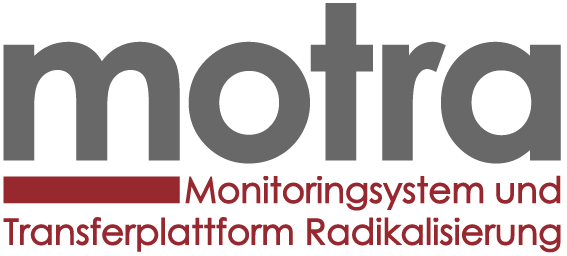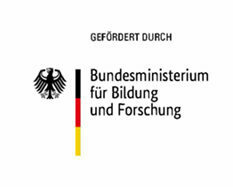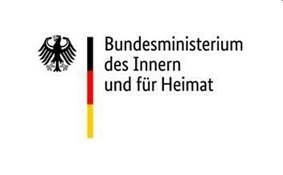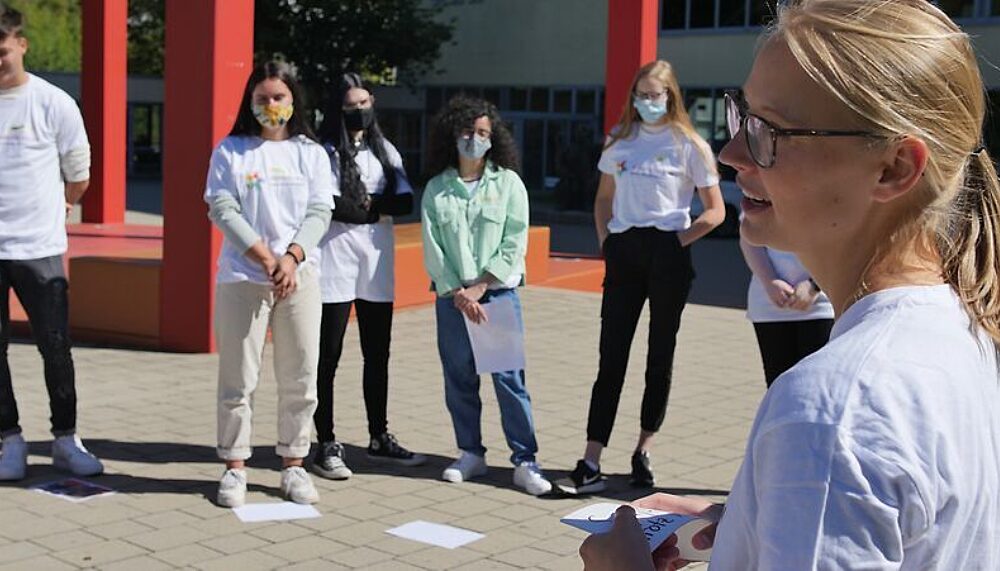CURRENT PROJECT
Radicalisation research and prevention in Germany
Expert panels as an integral component of a monitoring system and a transfer platform

The MOTRA research network counters violent radicalisation through phenomenon monitoring, knowledge transfer and networking with different actors and perspectives.
Timeframe: 2019 - 2028
The Germany-wide research network MOTRA (Monitoring System and Transfer Platform Radicalisation) creates a central monitoring platform for the early detection and prevention of extremism and serves as a focal point for academia, authorities, civil society and policymakers. The researchers conduct systematic and holistic monitoring on violence-oriented radicalisation in Germany.
The Berghof Foundation contributes to the MOTRA monitoring system with qualitative expert interviews and focus group discussions at national and regional level, in which representatives from science, government agencies and civil society participate. These panels aim to identify covert and new radicalisation processes on the one hand and on the other hand intend to capture different social perspectives on these phenomena and the associated challenges. In the longer term, the panels will contribute to strengthening the practical relevance of the questions pursued in the network, such as the conflict sensitivity of survey perspectives and instruments.

Project website: www.motra.info
Download the project flyer.
Background
At present, an increase in politically and religiously motivated radicalisation is being observed in Germany. This development is reflected, among other things, in politically motivated crime, violence and in forms of expressive hate crime. Social phenomena such as radicalisation, extremism and even terrorism are a permanent challenge for both the security authorities and society more broadly. In this context, violent extremism must be understood as consequence of inadequately regulated social conflicts, which requires the simultaneous consideration of three variables: the person acting, the ideology motivating action and the respective environment. These variables are highly interdependent.
Particular attention is therefore paid to the aspect of detecting and addressing extremism before it can turn into violence. To this end, knowledge of the extent, development, forms and causes of politically and/or religiously motivated extremism have to be recorded and analysed systemically. Analogous to increasingly complex processes of radicalisation, a dynamic increase in corresponding research and practice activities can be observed nationally and internationally. The development of structures for a more comprehensive, coordinated transfer of insights within and between the fields of science, politics and practice is lagging behind this rapid expansion of knowledge.
This is where MOTRA comes in – it aims to contribute to a comprehensive and evidence-based design of policy and practice by pursuing two central objectives:
- Empirical-analytical objective: Monitoring of diverse strands of radicalization in Germany
The holistic and systematic monitoring is implemented by means of multi-method, longitudinal phenomenon/trend analyses and in-depth case analyses. Systematic phenomenon monitoring enables a faster identification and classification of new phenomenon trends and lays ground for prognostic statements on significant phenomenon developments. - Structural objective: Improved transfer between science – practice – policy
The transfer platform offers a forum for exchange, based on a continuously updated inventory of current research findings. Already existing and related research initiatives in Germany will be invited to promote synergy effects. With the help of this central platform, knowledge gained through monitoring will be communicated to the academic community, civil society, authorities and policy makers to significantly shorten the time lag between the generation of research findings and their application context.
The typically interdisciplinary character of this research is crucial for MOTRA and is reflected in the numerous partners from science, politics and practice. Their participation in the network is essential for the rapid and successful transfer of knowledge among the three areas.
The Berghof Foundation will add insights and methods from peace and conflict studies to the interdisciplinary approach of the consortium. Building on its experience as convener of spaces for dialogue and conflict transformation, it will enrich the consortium research by bringing together yearly expert panels on national, regional and local level. These expert panels have four goals: to (1) engage a broad section of stakeholders in refining (qualitative) research results and methods; (2) engage a broad range of stakeholders in assessing hidden or new radicalisation processes; (3) enable conflict sensitive data collection and knowledge transfer; and (4) connect the empirical-analytic and structural objectives by organising focus groups and stakeholder dialogue.
Partners and funding
The project consortium consists of the following core partner organisations:
- Bundeskriminalamt (BKA), Wiesbaden (lead)
- Karlsruher Institut für Technologie (KIT)
- Kriminologische Zentralstelle e. V., Wiesbaden
- German Institute for Global and Area Studies, Hamburg
- Berghof Foundation Operations gGmbH, Berlin
- Wissenschaftszentrum Berlin für Sozialforschung (WZB) gGmbH, Berlin
- Universität Hamburg
- Ludwig-Maximilians-Universität München
This project is funded by the German Ministry for Education and Research in the context of its civil security research programme and the German Ministry of the Interior.


Publications from this project:
- Unter dem Radar: Protest und Mobilisierung gegen Geflüchtetenzuzug. Ergebnisse der MOTRA-Expert*innenbefragung 2023/2024
Michaela Glaser. 2025
- "Weil das jetzt wirklich in den Mainstream reingeht“. Aktuelle Radikalisierungsdynamiken aus Sicht der Praxis Ergebnisse der regionalen Expert*innenbefragung 2022/2023
Michaela Glaser. 2023
- Radikalisierung, quo vadis?. Trends und Schlaglichter aus dem nationalen Expert*innenpanel
Michaela Glaser, Beatrix Austin. 2022
- Radikalisierungsprävention durch eine friedensfördernde Brille. Blinde Flecken und neue Perspektiven
Beatrix Austin, Andreas Schädel, Tilman Papesch. 2021
Publications from this project:
Uwe Kemmesies, Peter Wetzels, Beatrix Austin, Christian Büscher, Axel Dessecker, Sven Hutter & Diana Rieger: MOTRA-Monitor 2022. MOTRA. 2023.
Uwe Kemmesies, Peter Wetzels, Beatrix Austin, Christian Büscher, Axel Dessecker, Edgar Grande & Diana Rieger: MOTRA-Monitor 2021. MOTRA. 2022.
Uwe Kemmesies, Peter Wetzels, Beatrix Austin, Axel Dessecker, Edgar Grande, Isabel Kusche & Diana Rieger: MOTRA-Monitor 2020. MOTRA. 2021.
Related publications:
Engjellushe Morina, Beatrix Austin, Tim Jan Roetman & Veronique Dudouet: Community Perspectives on Violent Extremism: Strengthening local factors of social resilience. Policy Brief. Berghof Foundation. 2019.
Engjellushe Morina, Beatrix Austin, Tim Jan Roetman & Véronique Dudouet: Community Perspectives on Preventing Violent Extremism Lessons learned from the Western Balkans. Research Report. Berghof Foundation. 2019.
Karin Göldner-Ebenthal & Véronique Dudouet, with support from Marie Migeon: Dialogue with Salafi jihadi armed groups: Challenges and opportunities for conflict de-escalation. Berghof Foundation. Berlin 2019.
Cassandra Schützko & Hazem Elgafari: Preventing Radicalisation and Supporting De-Radicalisation. Approaches and Main Stakeholders in Germany. Berghof Mapping Study (available upon request). 2017.
Project lead
Michaela Glaser
Senior Researcher and Project Manager
email hidden; JavaScript is required
Team members
Media contact
You can reach the press team at:
+49 (0) 177 7052758
email hidden; JavaScript is required


